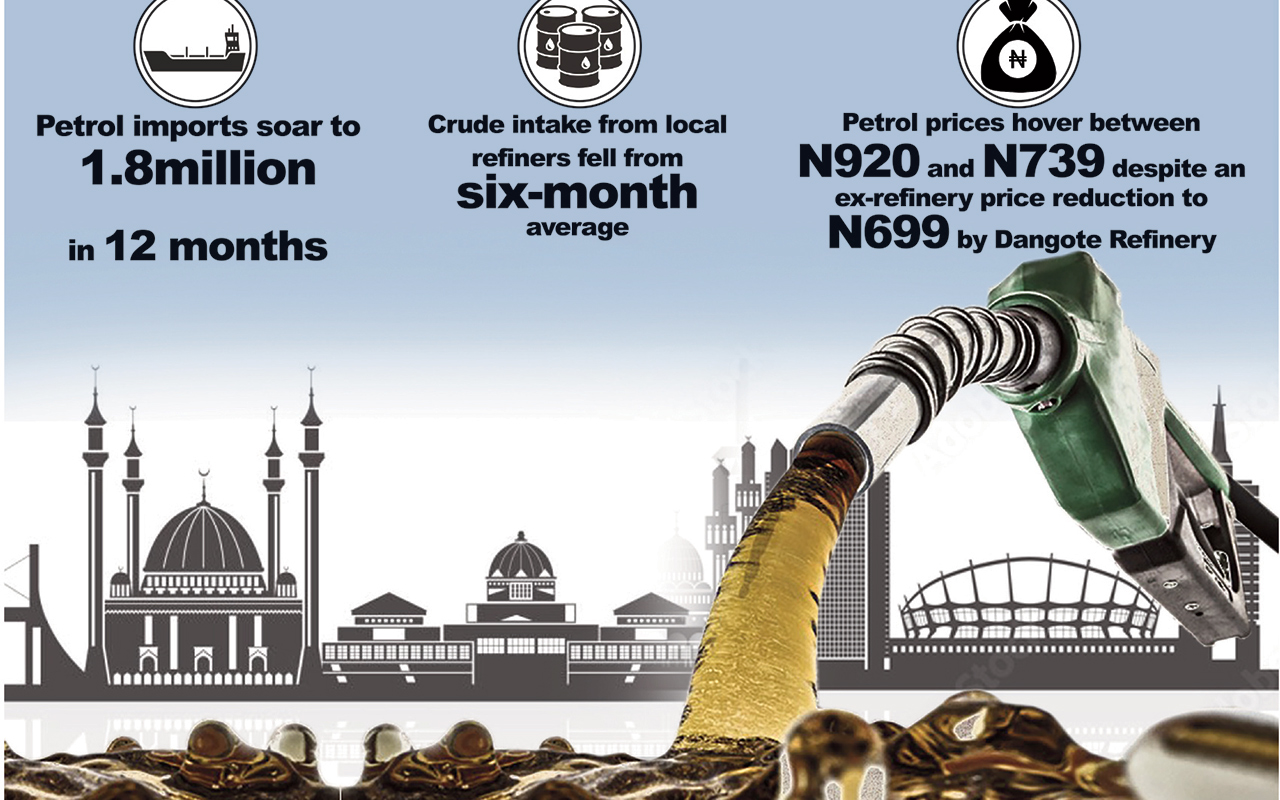
The Nigerian Nation Resource Charter (NNRC) has again raised the alarm about the approach of the Federal Government towards the use of proceeds of oil and gas despite dwindling fortunes of the sector.
Indeed, while the charter stressed that possession of oil and gas wealth offers opportunity for industrialisation, economic diversification, energy security, increase access to electricity and generally opens ways to transform an economy, and dramatically lift the living standards of citizens, NNRC’s 2019 benchmark report launched in Abuja showed that Nigeria lags in proper use of oil and gas earnings.
Speaking at the event, which is the fourth of its kind assessment of the nation’s resources, Programme Coordinator for NNRC, Tengi George-Ikoli stated that the non-passage of the Petroleum Industry Governance Bill remained a major set-back to the efficient management of the nation’s resources.
To ensure effective management of the nation’s natural resources, she said NNRC assesses the governance framework used to manage Nigeria’s natural resource wealth against 12 economic best principles precepts towards encouraging reforms.
While Nigeria is known for setting targets, with recent ones, which include increasing crude oil production to 3 million barrels per day, reducing the cost of crude oil extraction by 5 per cent, increasing domestic refining capacity, facilitating or providing a large number of well-paying jobs for youths and take 100m Nigerians out of poverty in the next 10 years, George-Ikoli said the targets would only be attainable if Nigeria’s petroleum wealth is managed appropriately.
“Diversification, hailed as the saviour for Nigeria’s economy can only be achieved by using Nigeria’s resource wealth to fund diversification efforts as done by Dubai, Norway, Saudi Arabia and other resource rich economies.
“Oil remains the driver and the lever needed to lift the larger percentage of Nigerians out of poverty as whatever happens within the petroleum sector directly or indirectly affects every other government policy direction and implementation.
“Norway and the UAE provide examples of countries that have used oil and gas resources to achieve enviable heights. Saudi Arabia’s national oil company, Aramco is also reputed to be one of the most profitable companies in the world, its recent IPO raked in $2 trillion, the NNPC could become equally as profitable,” she said.
Gorge-Ikoli stated that with the cases of improvement in other oil producing countries, diversification within the petroleum sector remained key to harnessing the linkages to the non-oil economy in the country, adding there was need for investments across the downstream sector to develop petrochemicals, fertilisers, methanol and refining, industries relevant in both industrial and consumer products which Nigeria currently imports.
“Unfortunately, the massive amount of investment being prevented by the delayed reform of the Petroleum Industry as envisaged in the Petroleum Industry Bill (PIB) and the uncertainty that the new fiscal terms could mean for the industry has tied down this dreams and aspirations as enunciated above,” Gorge-ikoli said.
According to her, without proper management of petroleum resources, the economy is at the mercy of price fluctuations in the international market as lower than expected oil price spell doom to the country’s economic plans.
She said: “Nigeria needs to ensure sustainable fiscal management that is resilient to global oil price cycles. Improving tax collection and administration have become imperative for achieving national growth objectives. Efficiency in government spending has to improve; there is room for substantial savings in capital outlays and operating expenditure across the three tiers of government. Poor resource allocation in one sector negatively impacts on another.
“For example, the opportunity cost of spending N37 billion to renovate the NASS Complex could be sending the 10 million out-of-school kids in Nigeria to school, or reducing both infant and maternal mortality rates to the barest minimum. Prioritisation is key, and without the media helping to influence opinions issues like this will not make it to the front burner.”
Gorge-Ikoli equally decried the use of fuel subsidy as a social transfer mechanism for citizens to benefit from oil and gas wealth, stressing that the means has failed to realize the purpose.
“Fuel subsidy payments have promoted corruption and benefited a few at the expense of all, leading to greater inequality. It has also promoted inefficient choices in energy use. Huge resources spent on subsidy over the years could have financed education, health, electricity and roads,” the Programme Coordinator said.
A Research Assistant with the Nigerian Center for Resource Alternatives, Enebi Opaluwa also frowned at the non-passage of the Petroleum Industry Governance bill, maintaining that the PIGB is the only legal framework that provides transparency in bidding process.
According to him, PIGB provides that before licence is granted to any firm for extractions of crude oil, environment impact assessment be carried out as well as the economic and social implications of that licence for that project, and it should be done before the licence is awarded, it is done at the policy making level by the institution, the NNPC to determine if the area should be given licence and even when licence is issued they must access what Nigeria stand to gain or lose and even when it is awarded they must look at how they should proceed.
“Unfortunately that is not the case in Nigeria as the licence is awarded and the company is asked to conduct the EIA and that has led to a lot of issues in the Niger Delta wherein a lot of communities are faced with environmental issues,” he said.






